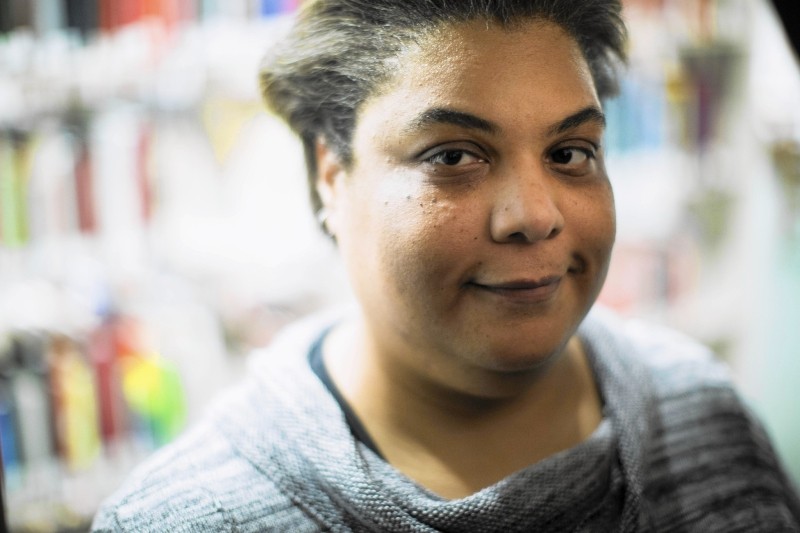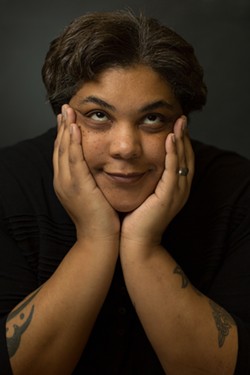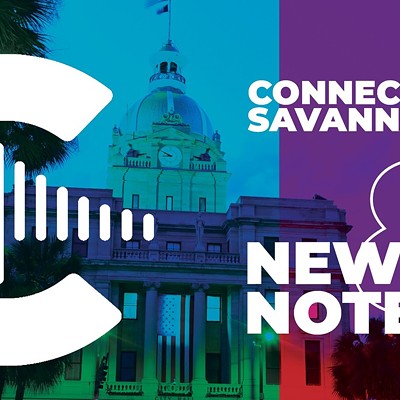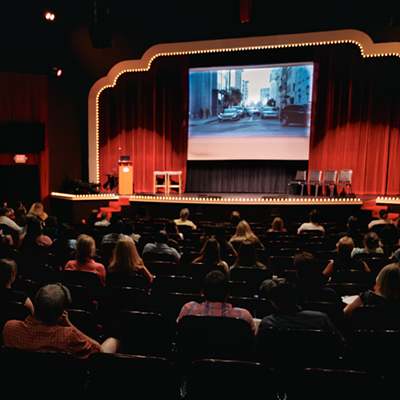IF YOU'RE a writer, a reader or a tweeter, you may already know that this is the moment of Roxane Gay.
The 41-year-old writer, professor and cultural commentator is currently dominating every media outlet in the stratosphere, from academic journals to Twitter:
Gay’s fiction has appeared in Best American Short Stories, Best American Mystery Stories and Best Sex Writing. She has written provocative pieces on everything from police brutality to nude celebrity photos for The Guardian, The Nation, The New York Times, BuzzFeed, Salon, McSweeney’s and just about every other relevant publication.
In her spare time, she co-publishes the poetry/prose collective PANK, edits the feminist website The Butter and teaches English at Purdue University.
She also writes books. Ayiti debuted in 2011 with haunting short stories exploring her parents’ homeland of Haiti, earning Gay a strong toehold amongst “writers to watch.”
In the summer of 2014, she released a novel, An Untamed State, and Bad Feminist, a collection of essays skewering modern society and its notions of egalitarian grandeur.
The novel has achieved every writer’s fantasy of success by becoming critically acclaimed and a bestseller, but it is Bad Feminist that has struck a major—if unlikely—cultural chord.
With its accessible analysis of gender politics and unapologetic adoration of Sweet Valley High, Bad Feminist provides a fresh, funny and thoughtful take on the complicated business of womanhood. The manifesto reaches further into the modern society’s confounding paradoxes, tackling trigger warnings, racial profiling, the bad BSDM of Fifty Shades of Grey and the unfortunate ubiquity of Tyler Perry.
Above all, Gay, with her easygoing voice and vulnerable honesty, embodies the definition of a feminist as someone who champions equality for all, however imperfectly.
“Let this be the year of Roxane Gay,” declared TIME magazine in 2014. But as her growing fandom awaits her next book, Hunger, due out in 2016, it’s clear her influence will last long after the current lightning flash.
In fact, Gay may end up credited with helping change the face of required reading in America. With reasonableness and wit, she has reignited the discussion (or at least fanned its flames) about the lack of women and writers of color in the American canon, calling the NYT Book Review to task for reviewing 90 percent white authors.
She has also humorously but doggedly pointed out that most “essential” literary lists continue to include “a lot of white men and Flannery O’Connor,” a transparent attempt at diversity the internet now shorthandedly refers to as “The Flannery Rule.”
Ironically—or maybe not—Gay will speak at the Flannery O’Connor Childhood Home’s 6th annual Ursrey Memorial Lecture this Thursday, Sept. 3 at Trinity United Methodist Church. Dedicated to the love and art of storytelling, the lecture series celebrates contemporary literature and has included Pulitzer Prize-winning author Michael Cunningham and National Book Award winner Jaimy Gordon.
Though she has lamented on Twitter the “overwhelming number of asks” in her inbox, Gay took the time to answer a few questions about her rocketing success, the Black Lives Matter movement and Flannery herself.
All of us bad feminists at the office are so excited you’re coming to Savannah. What works will you be reading from? Can we expect anything from your novel-in-progress, Hunger?
Roxane Gay: I don't know what I will be reading from! Probably something from Bad Feminist, my novel An Untamed State, and maaaybe, something from Hunger! I'm not sure Hunger is ready to be read from so we will see how I feel.
You are the "woman" writer on everyone's list right now. How does it feel to upend the "Flannery Rule"?
Roxane Gay: Have I upended the Flannery rule? It is certainly gratifying and flattering to be on many people's lists. But I also recognize that there are a great many women writers and writers of color in this world. I hope more of us continue to be recognized for our work and its excellence.
Has Flannery O'Connor or any other Southern writer had any influence on your own education and writing?
Roxane Gay: I enjoy Flannery O'Connor's short fiction. She has such a pointed, stylish way of telling a story. I can't say I've been significantly influenced by Southern writers but I have a deep appreciation for their writing and how they represent the South in fiction and nonfiction.
What are your general perceptions about the South?
Roxane Gay: In general, I am a work in progress where the South is concerned.
I am from the Midwest and have been to various places in the South but only briefly. I tend to worry about the South as a place where people are pretty racist and proud of the Confederacy but also very polite. I recognize how narrow-minded this is and I’m getting better about my understanding of the South.
Is there such a thing as a “Worst Feminist”? What are the most egregious acts that women do to sabotage their success, liberty and happiness?
Roxane Gay: The worst thing a woman can do to sabotage herself is to not believe in herself. Too many women count themselves out or diminish themselves, their intelligence, their capabilities, and their potential. We have to champion ourselves in both the personal and professional.
How can the #BlackLivesMatter campaign continue to wield influence over the 2016 election? Do "disruptions" like Marissa Johnson's represent the best balance between civil disobedience and riots?
Roxane Gay: That's a big question. The #BLM campaign can continue to demand to be heard. The movement will not nor should not be ignored. Disruptions are productive. At the very least, they are a catalyst for discussion. In the best of all worlds, they contribute to change. Look at how Bernie Sanders has added a racial justice platform to his campaign since he was protested by members of #BLM.
As a woman of color who unblinkingly explores the topics of sexual abuse, weight and immigration, you've basically taken on every cultural issue in America. Aren't you exhausted, girl? How have you handled the rocket ride of the last year?
Roxane Gay: Yes, I am exhausted. I'm taking things one day at a time and enjoying the exciting opportunities coming my way, trying not to take anything for granted.
You're so prolific on Twitter—when do you find time to write your books? Is your process disciplined or do you create in bursts?
Roxane Gay: I make the time to write because I love it. I tweet a lot, but it takes like, no time. I am generally working on something else and I switch over to Twitter to see what's going on and then I get back to what I am working on.
My process is not at all disciplined but eventually, I get everything done.
Did you ever believe growing up that you could and would have the kind of influence you have? What are you most excited about in your career and in your personal life right now?
Roxane Gay: I never dreamed I could have any measure of cultural influence. It's not even something I wanted. I love writing and telling stories. All I ever wanted to do is write. Everything that's happening is a dream beyond what I dared to dream.
In my personal life, well, I’ll keep that close to the vest but things are pretty damn good. Career wise, I love that I am getting to write the kind of books I want to write, with editors who are smart and caring with my work.































